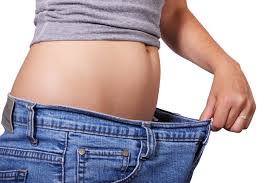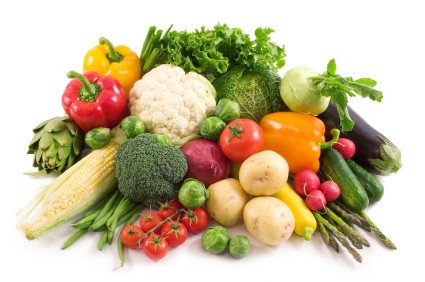Our bodies are like stroppy toddlers: they’re needy, constantly complaining and categorically refuse to do what we ask of them. As we get older, the struggle to keep our bodies in check gets even more difficult. At every turn something else is going wrong and our efforts to keep up start to feel like a fruitless battle. There is still a lot of stigma around liposuction. We hear about it going on pretty often, but for a lot of us it is still something we associate with Beverly Hills housewives or stars of reality television. We could never imagine actually getting it done to ourselves. Well, that’s about to change.

Image source Pixabay
As we get older, our metabolisms slow down to what feels like a complete stop. The cakes and burgers we scoffed in our twenties are now off limits and even that piece of toast in the morning is starting to feel like a risk. It’s a normal thing that happens to pretty much everyone, but it can still be upsetting to notice things wobbling and drooping that hadn’t before. Times are changing for the older generations, though. The years of grandmas and grandpas wearing corduroys and PVC rain macs are over. Older men and women are breaking down the barriers of fashion, setting trends and showing everyone that beauty really is timeless. Their setting their own standards of fashion and none of those include glossy pop-socks and blankets. What we’re also seeing at the same time is a rise of beauty conscious seniors. Plastic surgery is on the increase in the older generation and there isn’t any shame in that. One treatment that a lot of older men and women are looking into is vaser liposuction. It’s a form of liposuction that uses vibration to break down fat cells in target areas, which is a lot safer and less taxing on the body than traditional liposuction. Because it isn’t as damaging to the body, it’s becoming a favoured option for the slightly less durable older generation and helping them rediscover their love for their body.
Sometimes getting liposuction isn’t about wanting to be thinner. Our bodies distribute fat in very strange ways. A lot of women have an issue with being unable to get rid of the fat on their hips and for a lot of men their stomach is one of the hardest places to get rid of fat. When these little things go wrong in our bodies we might have a tendency to obsess over them. You could be as healthy and as fit as an athlete and these things wouldn’t change, no matter how much work you put in. It’s just the way our bodies work: they’re strange and mysterious and they never do what we want them to do. Sometimes fat distribution can be especially strange; we can find it collecting under our chins and around our ankles and it’s almost impossible to shift it in these sorts of places without dieting to an unhealthy extreme. This is where vaser liposuction can really make a difference. There are cases of people getting fat removed from their knees or from under their arms and feeling like they can finally be proud of their body. It’s the little things that make a difference. Not necessarily to other people, but for the person getting the treatment it could mean finally gaining the confidence to wear what they want to wear and carry themselves with confidence.
Gwyneth Paltrow has revealed that she was left “hallucinating” after a 10-day cleanse.
Gwyneth Paltrow, 40, is known for being active and eating healthy, but admits she has tried fads like juice cleanses in the past which did her more harm than good.
The actress explained: “I’ve done juice cleanses in the past, and in my twenties I did the Master Cleanse, which left me hallucinating after 10 days.
“Be aware: a juice detox can crash your metabolism and lead to future weight gain.”

Gwyneth Paltrow has revealed that she was left “hallucinating” after a 10-day cleanse
Although she’s committed to healthy living, Gwyneth Paltrow reveals she does indulge in naughty treats every now and then – including wine and cigarettes – because it provides some “balance” in her life.
In a self-penned article for The Telegraph newspaper, Gwyneth Paltrow wrote: “Stay away from processed foods, though cutting them out completely is no fun and can ultimately lead to a binge.
“Allow yourself programmed treats; I often have a glass of red wine in the evening and smoke a cigarette on a Saturday.
“I love those moments because they are just the right amount of naughty. That balance keeps you vibrant. You have to live your life, after all.”
Along with a good diet, Gwyneth Paltrow insists exercise is important and says she finds time to work out five days a week.
Gwyneth Paltrow added: “Keep up consistent exercise. I am dedicated to the Tracy Anderson Method and it has completely changed my body. Still, when I first started working with Tracy, finding motivation was hard.
“She advised me to think of exercise as an automatic routine, no different from brushing your teeth, to avoid getting distracted.
“Now it is part of my life – I exercise Monday to Friday at 10 a.m. and always stick with it.”
Dieters frequently report reaching their goal weight, only to find that the pounds creep back on.
Scientists say the trick to keeping weight off permanently is to cut 300 calories from your daily food intake.
In a study presented at the European Congress on Obesity earlier this year, Professor Michael Rosenbaum described how dieters need to consume 22% fewer calories a day than someone who hasn’t dieted simply to maintain their weight (so a non-dieter could consume 1,600 calories a day and not gain weight, while a dieter of the same weight must stick to around 1,300).

Scientists say the trick to keeping weight off permanently is to cut 300 calories from your daily food intake
Dietitian Linia Patel, spokesperson for the British Dietetic Association, says: “It’s believed this phenomenon can be explained by the effect dieting has on muscles. Dieters’ muscles need fewer calories to do the same work than those of people who haven’t been on the diet in the first place.”
As we age the picture becomes even bleaker.
“Lean muscle helps the body burn a greater number of calories, but as we age our muscle mass drops along with our metabolism.”
The result is that our bodies need fewer calories to maintain our weight.
But extra calories can be burnt off through exercise – resistance training and lifting weights are among the most effective ways to build lean muscle mass.
Everything you think you know about healthy eating is wrong, according to a new research.
Here you find six myths about healthy eating:
1. Low-fat salad dressing is good for you
Drizzling a fat-free dressing over your salad isn’t as healthy as it seems, or so says a study.
Scientists found that eating your salad alongside a little fat helps your body absorb the nutrients from the vegetables more efficiently.
“Certain foods become healthier when eaten together,” says nutritionist Vicki Edgson.
“Many vegetables are fat-soluble, which means your body absorbs their nutrients better when you eat a little fat with them.”
In fact, James Duigan, author of Clean & Lean, and personal trainer to the stars, including Elle Macpherson, argues you should never have a fat-free salad.
“The more nutrients your body absorbs, the less hungry it feels, plus you’ll get fewer sugar cravings. Adding a little goat’s cheese, olive oil, avocado or nuts to your salad will make you healthier and slimmer.”
2. Skimmed milk is healthier
Studies show the health-boosting vitamins in full-fat milk – including vitamins A, D, E and K – are fat soluble, meaning your body absorbs them more efficiently when taken with fat.
“It’s also worth remembering that full-fat milk isn’t even that high in fat,” says James Duigan.
“It only contains around four per cent of fat compared with, say, cream, which is almost 50 per cent.”
So unless you’re drinking pints of milk every day, you’re better off sticking to full-fat milk. Vitamins A, D, E and K have been shown to keep teeth and bones healthy, and boost your immunity.
A study from Cardiff University found full-fat milk can help keep your metabolism fired up and your risk of heart disease down.

Everything you think you know about healthy eating is wrong, according to a new research
3. Margarine is better than butter
For years we’ve been buying margarine for its butter-like taste but with less fat and calories. Have we been wasting our time?
“Margarine is highly processed and contains hydrogenated fats which the body can’t break down through the digestive tract and liver,” says Vicki Edgson.
“These types of fats are stored in the fat cells of our body, interfering with the way in which we hold on to or lose fat. Butter, on the other hand, is a natural product with barely any additives.”
“Butter contains a natural fatty acid called CLA, which studies show helps reduce your risk of heart disease if you have a small amount each day,” adds James Duigan.
“CLA also enhances the flavor of your food and satisfies your appetite in a way that a bland processed spread never will.”
4. Only sweets contain sugar
“Many women know the fat content of everything, especially if they’ve struggled with their weight,” says James Duigan.
“What they don’t know is the sugar content of foods.”
And, according to James Duigan, this is where the problem lies.
“Traditionally, sugar is seen as a harmless treat, whereas fat is seen as the enemy,” he says.
“Our consumption of sugar has risen dramatically because as well as the obvious culprits, it’s also found in many everyday foods including yoghurts, pasta sauces and even bread.
“Sugar is more fattening. For a start, fat really fills you up. If you eat a bowl of creamy pasta or a fry-up, you’ll become very full. Whereas you can keep eating sugar – in the form of sweets, fizzy drinks and biscuits – and never feel properly full, so it’s easy to overeat.”
Sugar is bad news for our health, too. A study from Harvard University in the U.S. found that drinking a sugary drink every day increases your risk of heart disease. Another study found a high sugar diet is linked to heart disease.
“Sugar makes you fat because it’s the most refined form of carbohydrate,” says Vicki Edgson.
“It rapidly raises blood sugar levels, which affects insulin production and the rate at which the body lays down extra fat.”
5. Count calories to lose weight
“Technically calories do count when it comes to keeping slim,” says James Duigan.
“The calories you put in (what you eat) versus calories out (how much you move around) determine weight loss or gain. However, in reality, it’s a bit more complicated than that. Take, for example, salmon and avocado.”
Both foods are high in fat (the good, heart-healthy kind) and calories. An avocado contains 275 calories and a salmon steak contains around 170 calories (compared with around 90 in a cod fillet).
“But you’ll never get fat eating avocado and salmon,” says James Duigan.
“For a start, they contain omega 3 fatty acids, which as well as being heart-friendly, also help your body to burn fat more efficiently.
“And a low-calorie diet doesn’t necessarily mean a healthy diet. Plenty of low-calorie diets are made up of nutritionally-deficient foods such as bland cereal and processed, tinned food.
“This type of diet will leave you sluggish, unable to concentrate and craving sugar. In time, this can set up a binge/diet cycle that ruins your metabolism.”
James Duigan says: “Just eat nutritious, wholesome foods that are as unprocessed as possible and forget about how many calories they contain.”
6. You can’t eat too much fruit
“Lastly, most people assume the five-a-day message just applies to fruit, but try to eat more vegetables than fruit,” says James Duigan.
“Fruit is high in natural sugars, especially tropical varieties like bananas and mango and over-ripened fruit. Go for thin-skinned fruit – such as berries, pears and apples – because they contain more antioxidants.
“And always eat it with a little fat (such as nuts) because this will slow down the speed at which the sugar hits your bloodstream. This will keep blood sugar levels steady – sugary foods raise them rapidly causing them to crash, which leads to tiredness and cravings for more sweet food.”
Vicki Edgson adds: “Many people are sensitive to fruits and fruit sugars and experience bloating, wind and abdominal pain after eating too much of them. I recommend people eat more vegetables than fruit, yet most of us do it the other way around.”




